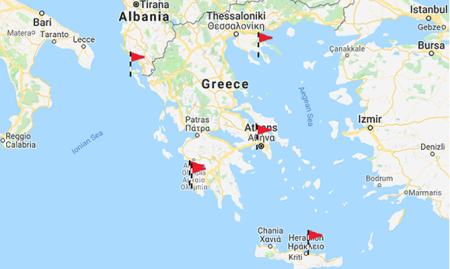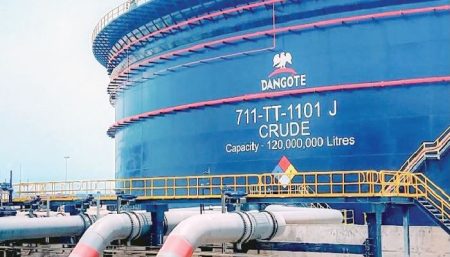This legal dispute revolves around the divestment of onshore and shallow water oil and gas assets by Shell UK PLC, the parent company of Shell Petroleum Development Company (SPDC), to Renaissance Energy Africa Ltd. King Bubaraye Dakolo of Ekpetiama Kingdom in Bayelsa State, Nigeria, has filed a lawsuit challenging the legality of the divestment process and seeking redress for decades of environmental pollution allegedly caused by Shell’s operations in his domain. The Ekpetiama Kingdom hosts the Gbarain-Ubie gas plant and Gbarain oilfields, placing it at the center of Shell’s operational footprint in the region. The lawsuit alleges that the divestment failed to comply with the guidelines stipulated in the Petroleum Industry Act of 2021, potentially raising questions about the legitimacy of the asset transfer. Furthermore, the suit highlights the long-standing issue of environmental damage caused by oil exploration and production activities, seeking remediation for the alleged 40 years of pollution impacting the Ekpetiama Kingdom.
The legal proceedings commenced at the Yenagoa Division of the Federal High Court. King Dakolo’s legal representative, Mr. Chuks Uhuru, presented an ex parte application requesting permission to serve the court summons on Shell UK PLC through substituted means, given the parent company’s domicile in the United Kingdom. Justice Ayo Emmanuel, presiding over the case, granted the application, facilitating the inclusion of international entities within the legal process. This decision underscores the transnational nature of the dispute, involving parties based in Nigeria, the United Kingdom, and the Netherlands. The court subsequently adjourned the case to July 22, 2025, to allow time for the service of the summons and to mark the official commencement of the hearing.
The defendants named in the suit, bearing case number FHC/YNG/CS/81/2025, include the key players in the divestment transaction: Shell Petroleum Development Company of Nigeria (SPDC), Shell Petroleum N.V., Shell UK PLC, and Renaissance Energy Africa Ltd. The inclusion of governmental bodies like the Attorney General of the Federation, the Nigerian Upstream Petroleum Regulatory Commission, and the Minister of Petroleum Resources reflects the broader regulatory and policy implications of the case. The involvement of these entities suggests that the legal proceedings may delve into questions of regulatory oversight, compliance with national laws, and the government’s role in overseeing the oil and gas industry within Nigeria.
Renaissance Energy Africa Ltd., the acquirer of Shell’s divested assets, is a consortium of indigenous oil firms. The acquisition, finalized in March 2025, marked a significant shift in ownership within the Nigerian oil and gas sector. The transaction itself forms the core of the legal dispute, with King Dakolo’s lawsuit challenging the validity of the process and demanding accountability for past environmental damage. The outcome of this legal challenge has the potential to set precedents regarding divestment procedures, environmental liability, and the responsibilities of international oil companies operating in Nigeria.
The case highlights the complex interplay between international corporations, local communities, and government regulators in the context of natural resource extraction. It raises critical questions about the environmental legacy of oil and gas operations and the mechanisms for holding companies accountable for past actions. Furthermore, the legal proceedings delve into the complexities of international corporate structures and the challenges of enforcing legal obligations across borders. The July 22 hearing marks the next stage in this complex legal battle, which could have significant implications for the future of the oil and gas industry in Nigeria and beyond.
The court’s decision on July 22 and the subsequent proceedings will be closely watched by stakeholders in the oil and gas industry, as well as by communities affected by oil exploration and production activities. This legal battle holds the potential to reshape the landscape of corporate accountability in the extractive industries, setting precedents for future divestments and highlighting the importance of environmental protection and community engagement in resource-rich regions. The case also represents a test of the effectiveness of the Petroleum Industry Act 2021 and its ability to safeguard the interests of local communities and ensure responsible resource management.














